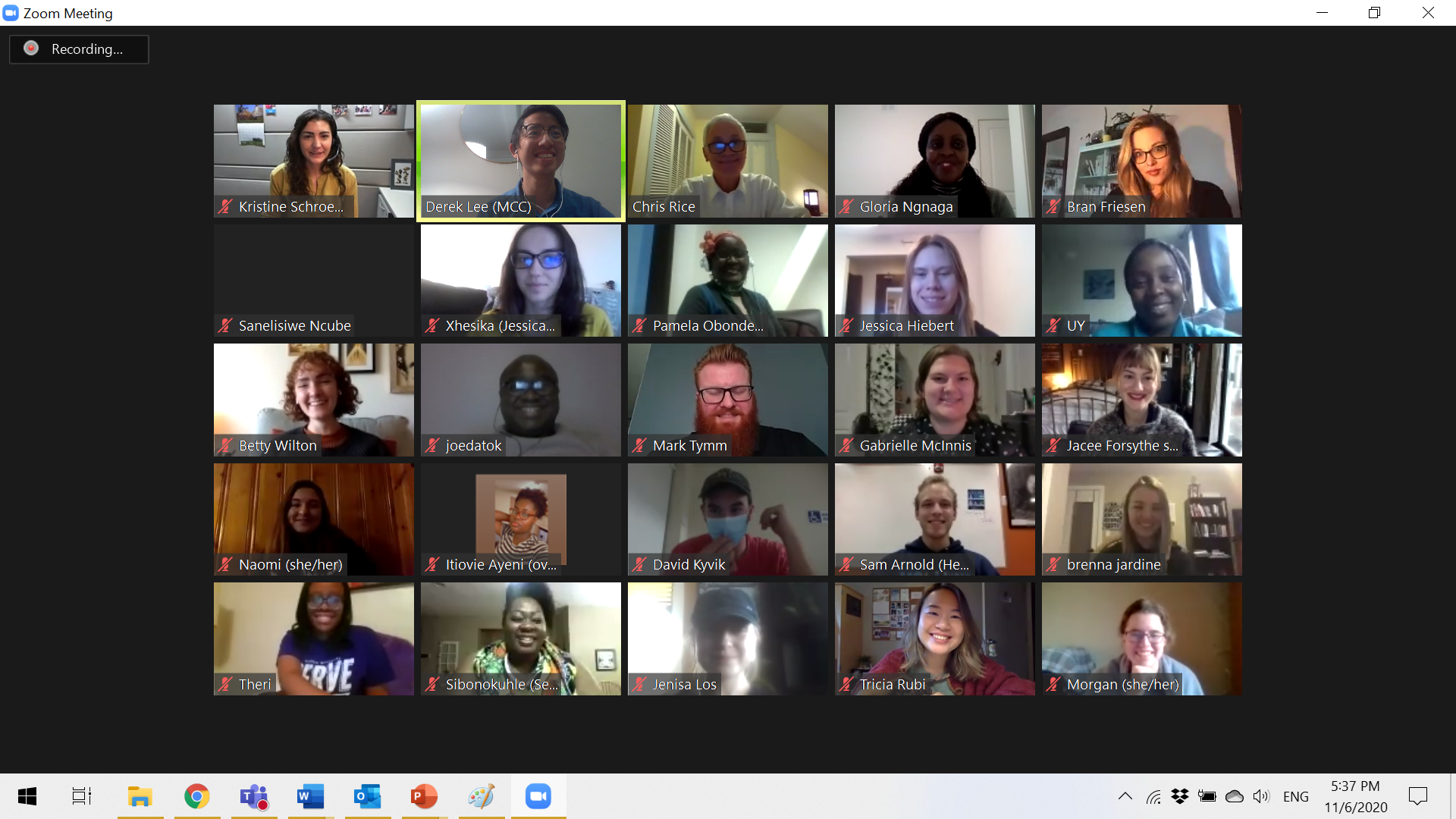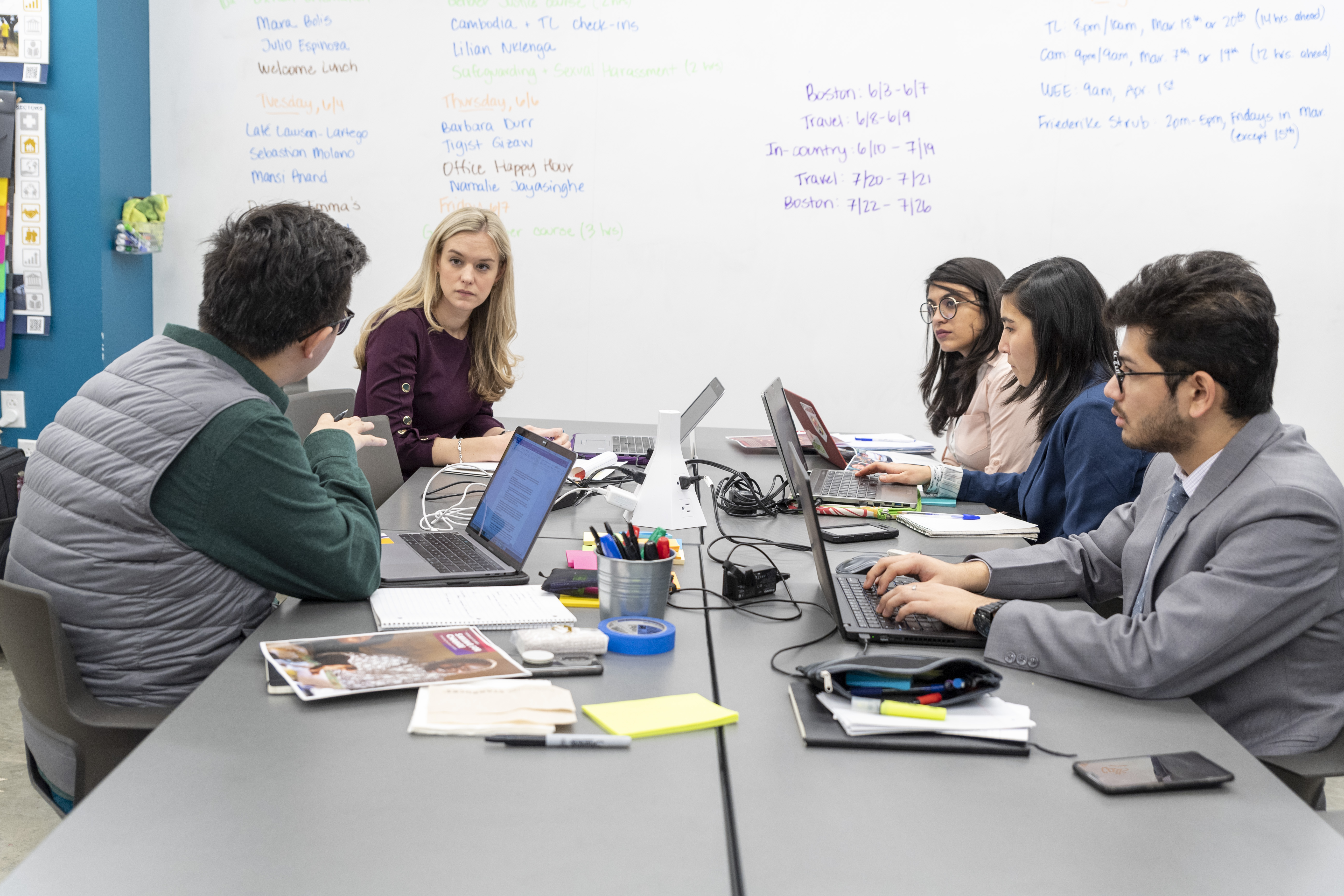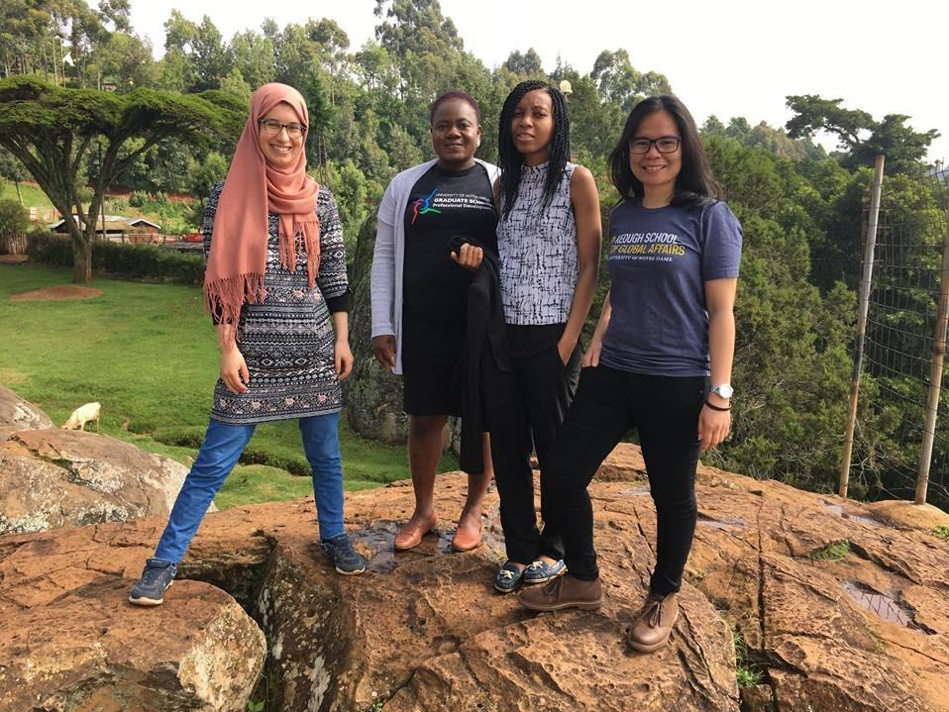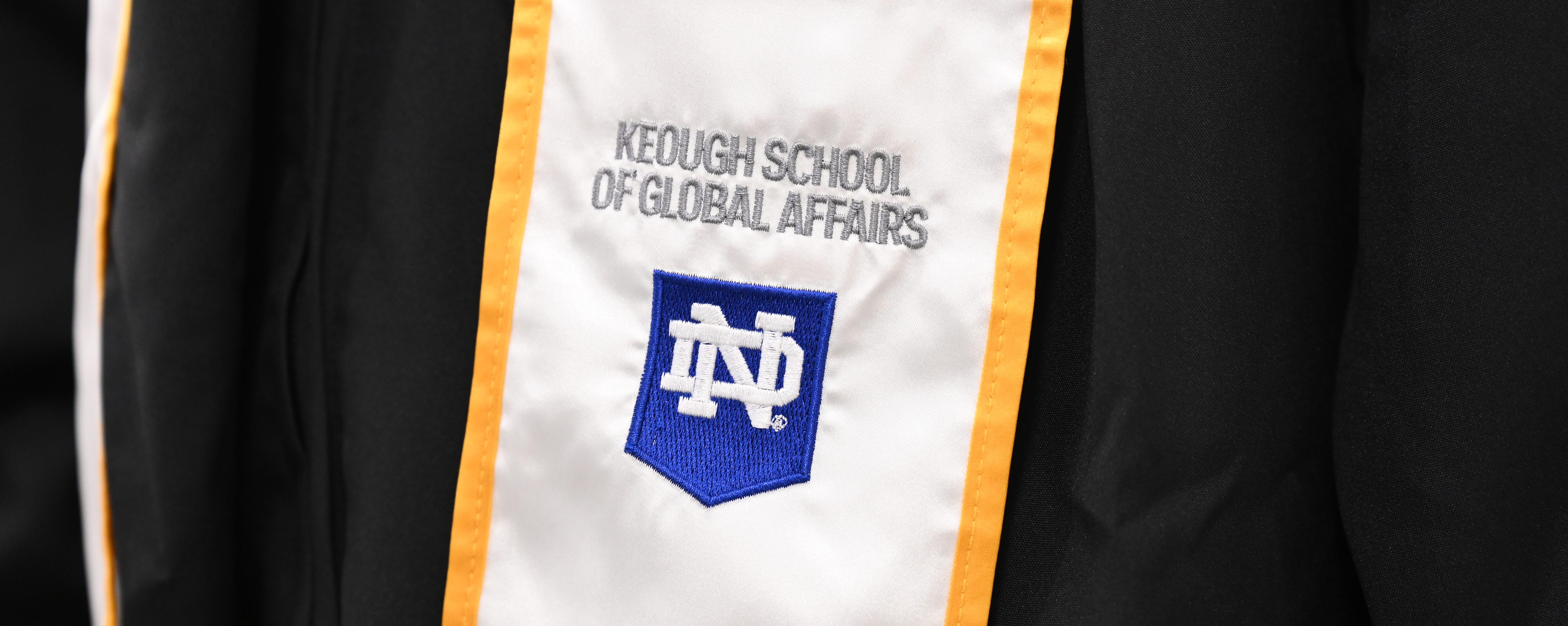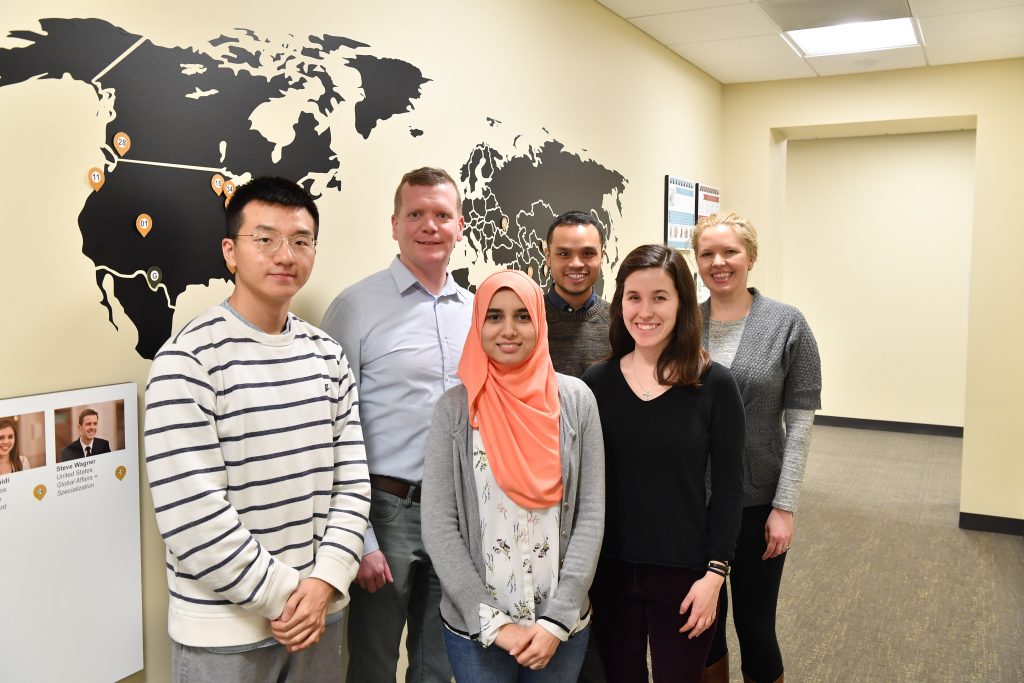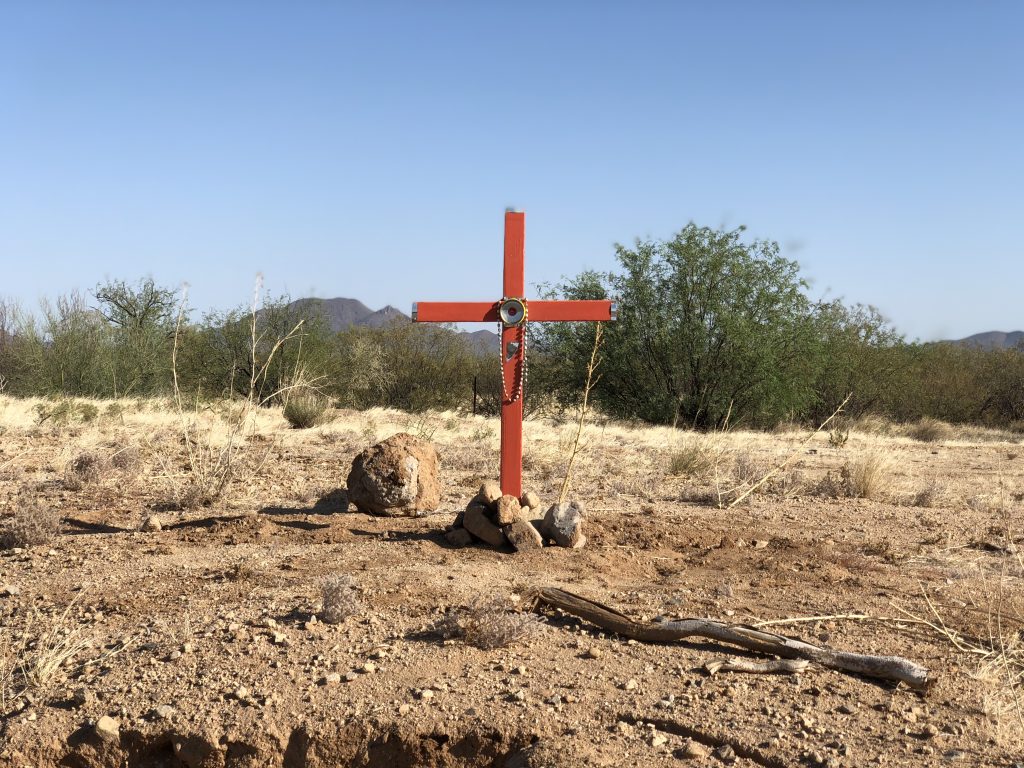In a joy-filled recognition ceremony on May 14, Notre Dame’s Keough School of Global Affairs honored its graduating Class of 2022, which included thirty-six undergraduates, eighteen master of global affairs students, and five newly minted PhDs. In the Patricia George Decio Theatre at the DeBartolo Performing Arts Center, Keough School faculty and staff gathered with the graduates’ family and friends, who traveled from all over the world to attend Notre Dame’s commencement weekend events.
Student speakers representing each of the Keough School’s three levels of study addressed the graduates: Nelisha Silva (undergraduate), Arthur Joseph Ssembajja (master of global affairs/master of business administration), and Steven Savides (PhD).
Silva, an English and global affairs major from Las Vegas, Nevada who also earned a concentration in civil and human rights, expressed her appreciation for the academic home she found in the Keough School.
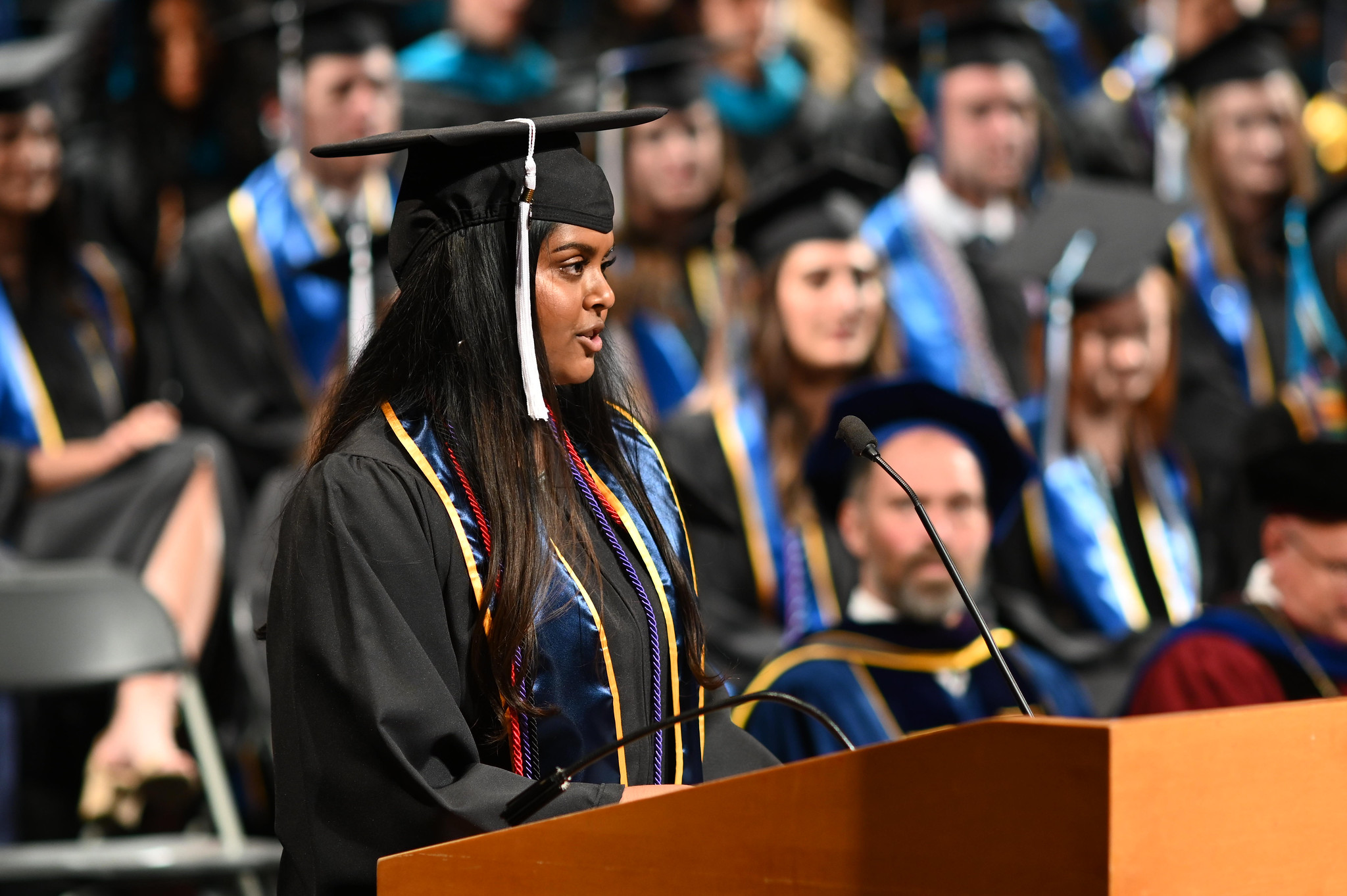
“I knew that no matter what I majored in, I wanted to be part of the Keough School in some way, shape, or form,” said Silva, who praised her first undergraduate course in the Keough School: Love and Romance in Modern Asia, taught by anthropologist Julia Kowalski. “That class opened my eyes to all the Keough School had to offer, and I’ve never looked back,” Silva said. After graduation, Silva will begin work for a US Senate campaign.
Arthur Joseph Ssembajja, a Catholic priest of the Diocese of Kasese, Uganda who earned a dual MGA/MBA degree, shared appreciation for the Keough School’s strong sense of community.
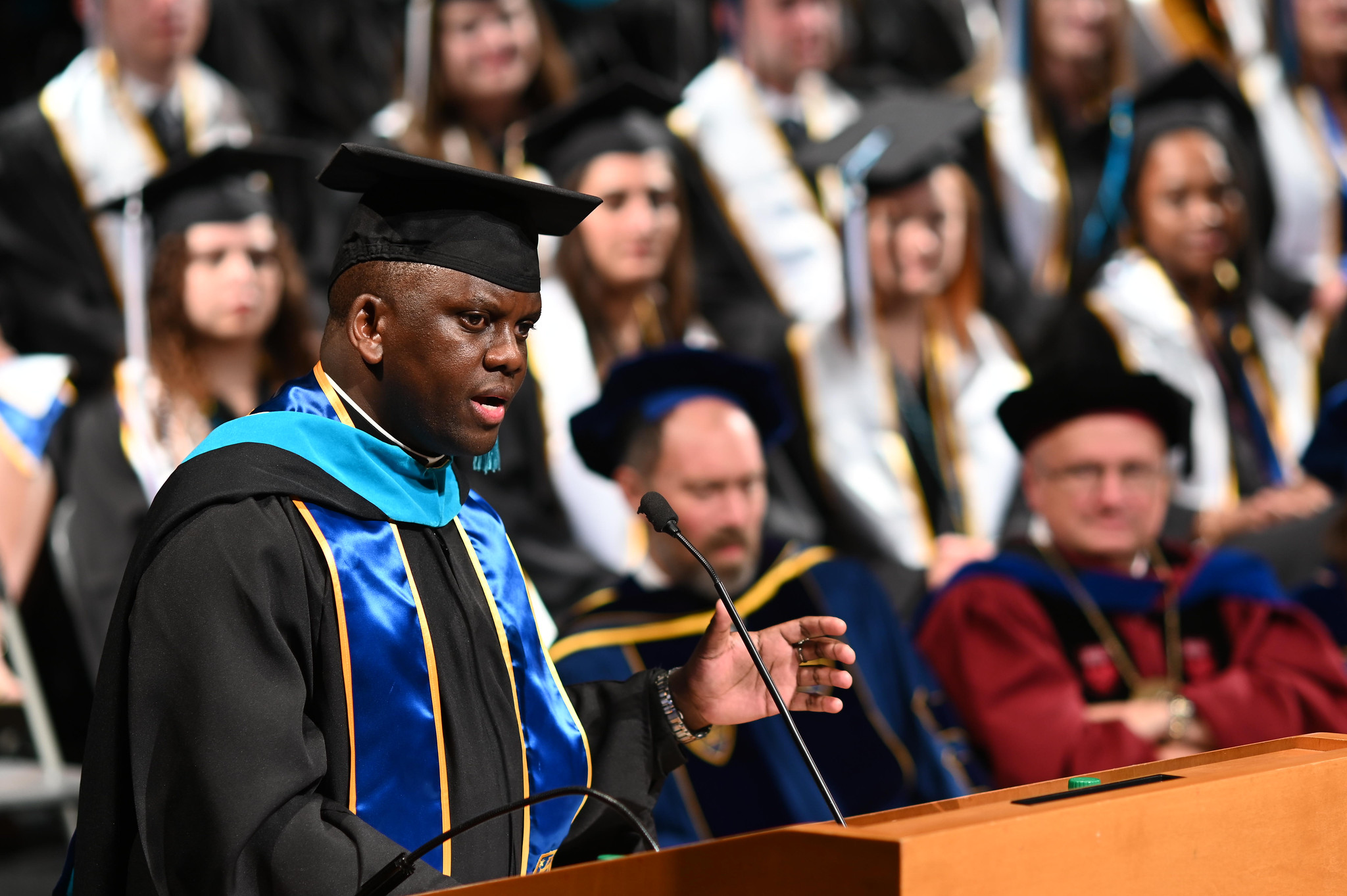
“Today isn’t the last time you see or hear of us,” Ssembajja said. “We look forward to being in the same room at conferences and together in lobbies and corridors; developing, enacting and implementing policies together; conducting research and publishing together; being mentored by you and most importantly serving humanity together.”
Steven Savides, who earned a PhD in peace studies and theology from the Keough School’s Kroc Institute for International Peace Studies, expressed gratitude for the school’s interdisciplinary academic environment.
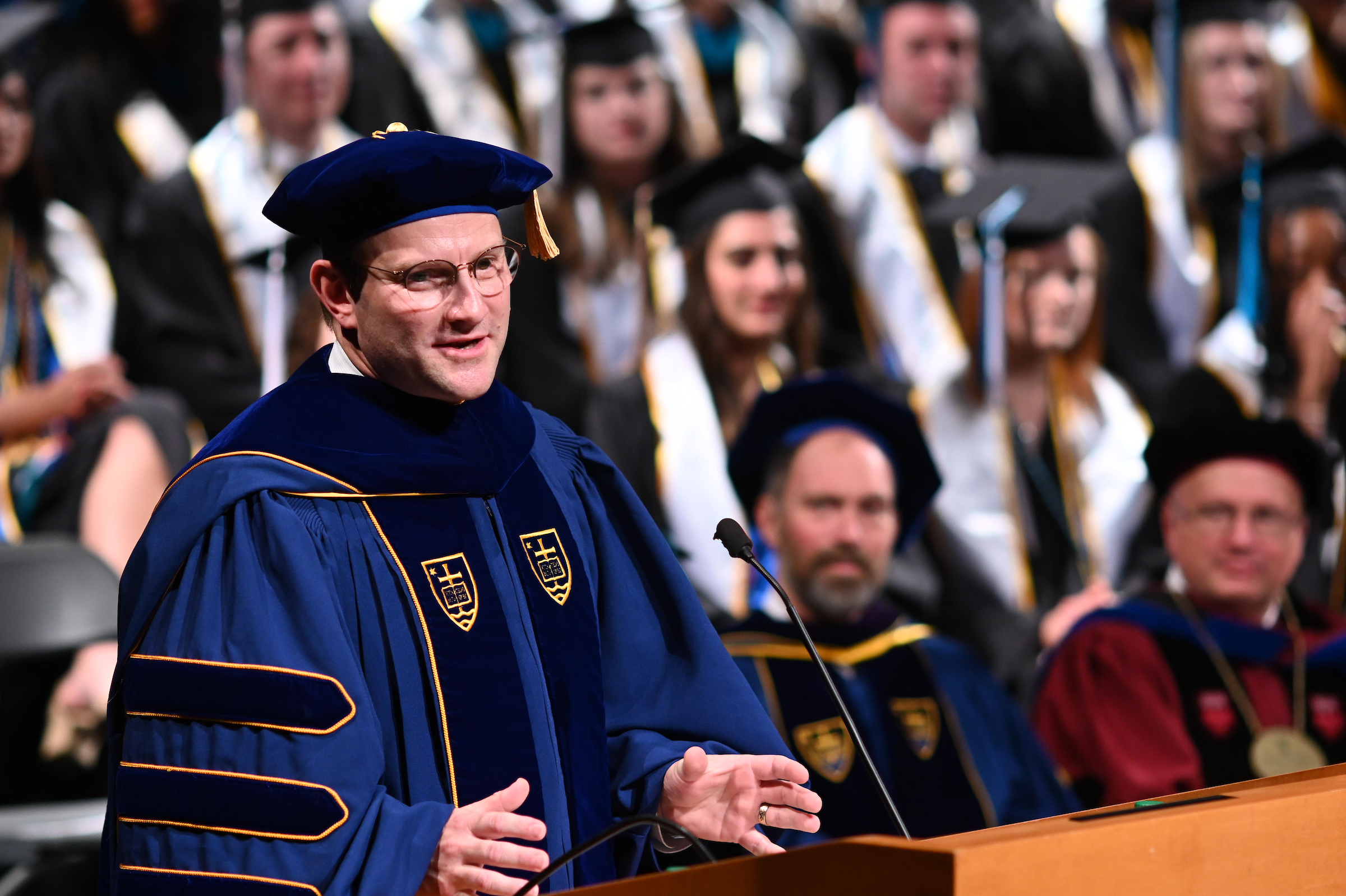
“Earning my PhD while being exposed to the disciplines of anthropology, history, political science, psychology, and sociology, as well as other disciplines across the university, has forged my thinking in ways I could never have imagined,” said Savides, a South Africa native who has joined the faculty of Principia College in St. Louis, Missouri. “This ability to ask sharper questions with interdisciplinarity in mind has had a profound impact on my research and teaching. As an assistant professor at a liberal arts college where I teach peace and conflict studies, ethics, and communication, not a day goes by that I do not actively draw on the knowledge and patterns of thinking I developed here.”
In a concluding charge to the graduates, Marilyn Keough Dean Scott Appleby commended the Class of 2022 not only for their academic accomplishments, but also for the resilience and compassion they demonstrated amid the global pandemic.
“You have deepened your global awareness and compassion by being attentive to the conditions daily in front of you,” Appleby said. “Indeed, whenever you have befriended and served one another in these common struggles, you have deepened your purchase on our common task—to pay close attention to people in need and to deliver what is required to serve them.”
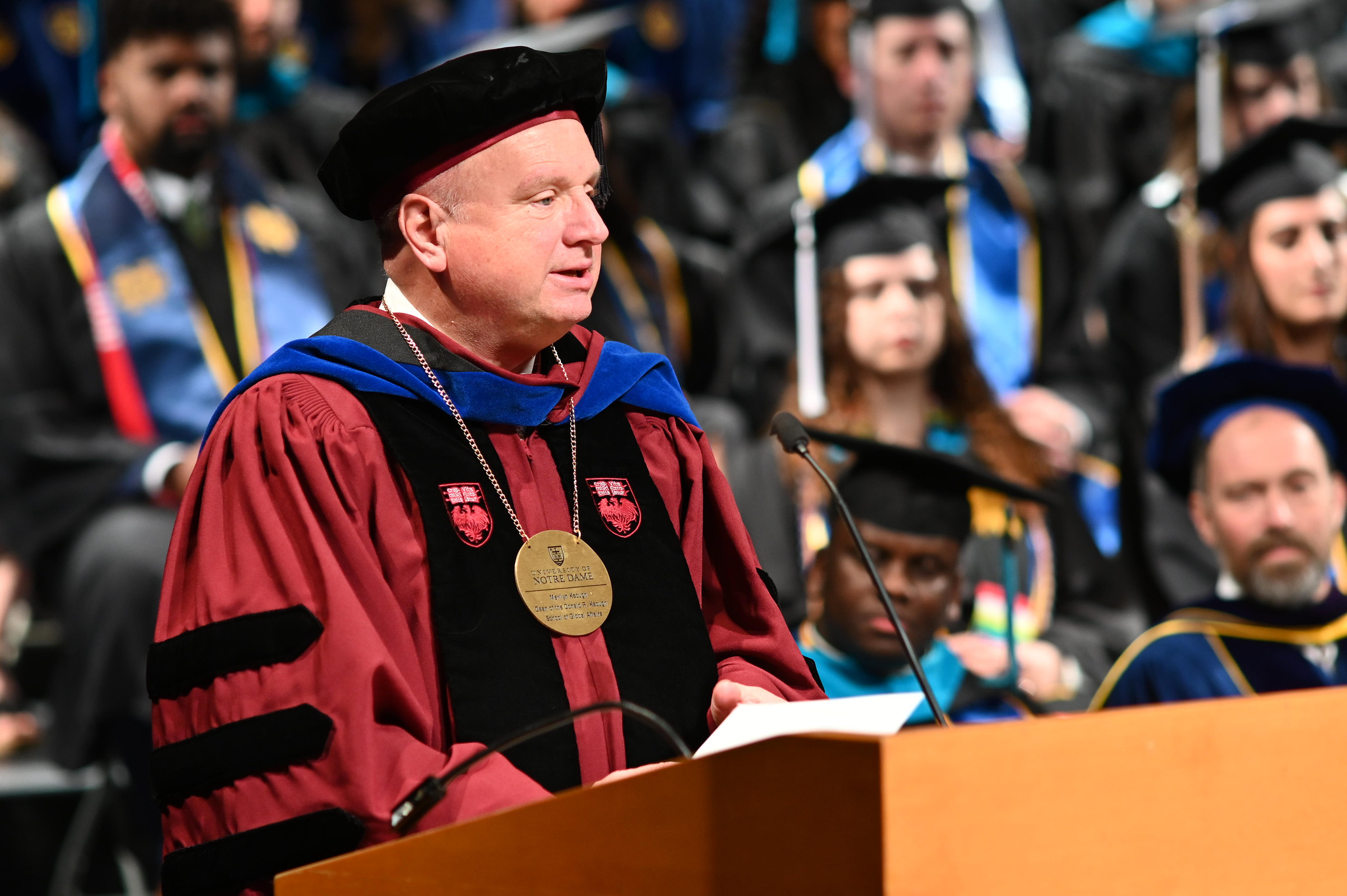
Appleby challenged the graduates to transform their knowledge and fortitude into a force for good beyond Notre Dame.
“I charge you with the improbable but not impossible task of transforming the plague years into a platform for action,” Appleby said. “These years have made us ever more sober-minded, realistic and detailed in our appraisal of the obstacles ahead. In order to succeed, your research, teaching, activism, advocacy and attentiveness in pursuit of justice must be accompanied by a sustaining faith in your ability to prevail.”
Congratulations to the Keough School Class of 2022!
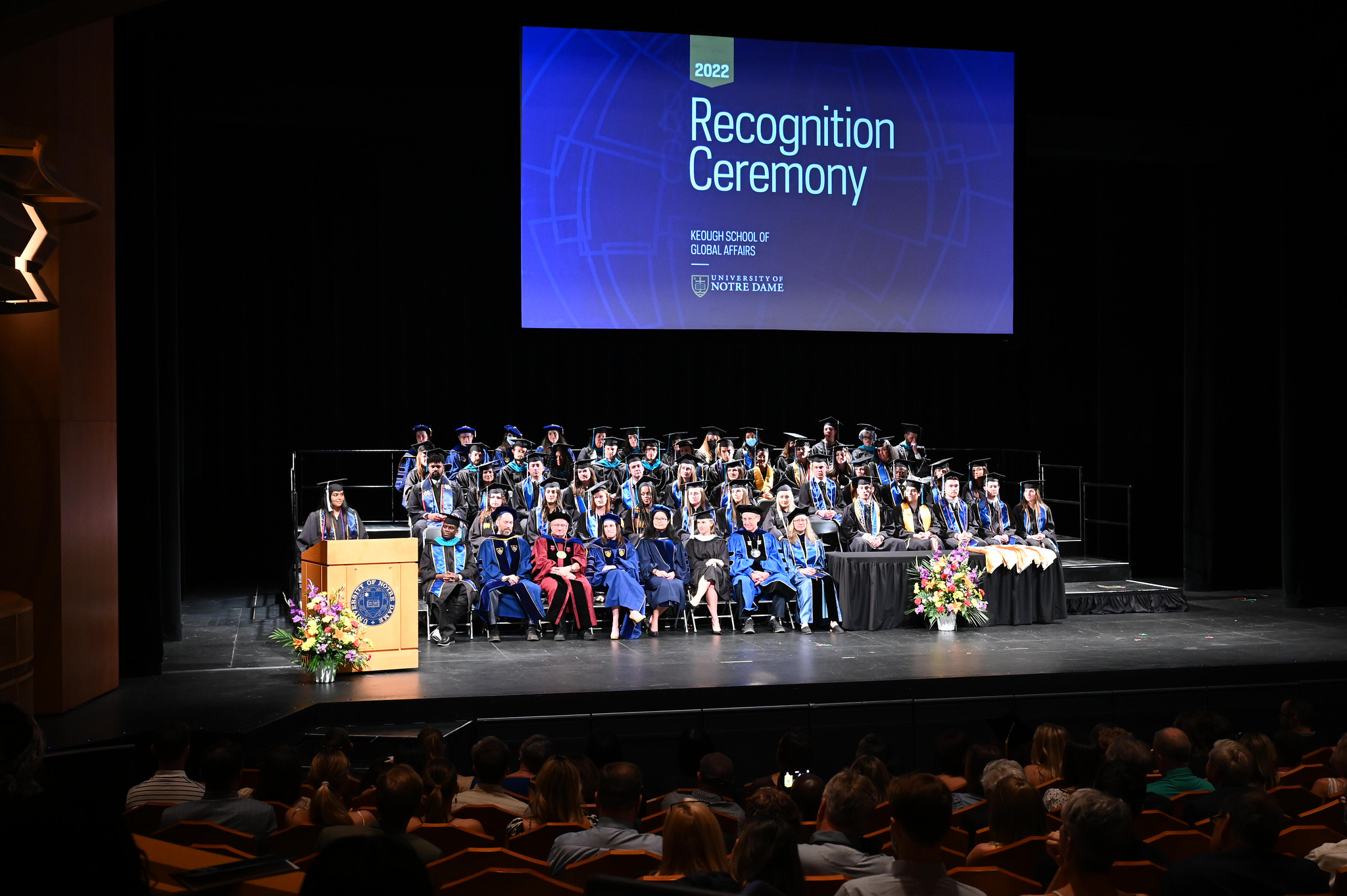
Learn more about the school’s degree programs:
Undergraduate major in global affairs
